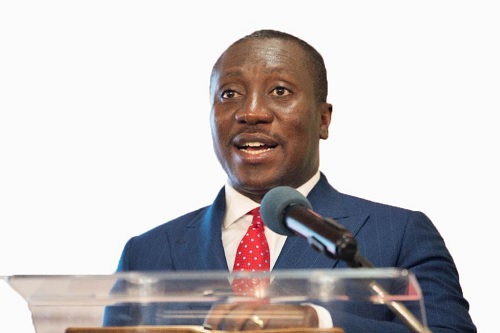
NDC’s promise of a better Ghana is an illusion - Afenyo-Markin
Majority Leader in Parliament, Alexander Afenyo-Markin, has urged Ghanaians to dismiss the promises and policy proposals put forth by the opposition National Democratic Congress (NDC).
He asserted that the NDC, led by its flagbearer, Former President John Dramani Mahama, had already been given the chance to transform the country's fortunes but failed to implement significant social interventions for the benefit of Ghanaians.
"The NDC's pledge today of a better Ghana is mere illusion. It lacks substance. They've had their chance, and I'm telling you, the Mahama of yesterday and his ministers are the same today. They've remained unchanged, with no fresh ideas," he stated in an interview with Accra-based TV3.
Mr Afenyo-Markin, who represents the Efuttu constituency in Parliament, highlighted the absence of substantial social intervention programs during the NDC's tenure. He challenged whether there were any significant programs introduced during their eight years in power.
Contrastingly, he praised the ruling New Patriotic Party (NPP), asserting that it has implemented numerous policies that have enhanced the livelihoods of ordinary Ghanaians. While acknowledging some shortcomings in major social interventions like the Free SHS policy, Afenyo-Markin insisted that Ghanaians were now better off under President Akufo-Addo's leadership compared to the NDC era.
To support his argument, Afenyo-Markin pointed out that from 2017 to 2020, the NPP government had not introduced any major taxes. Instead, they repealed some taxes and reduced the rates of others to alleviate the burden on Ghanaians, a move he claimed the NDC failed to achieve.
He referenced President Mahama's past statements in parliament, where he lamented over challenges with electricity tariffs and infrastructure development, attributing these issues to limited revenue from taxes. Afenyo-Markin emphasized that the NPP had taken strides to address these concerns, contrasting the NDC's perceived inaction during its governance.
